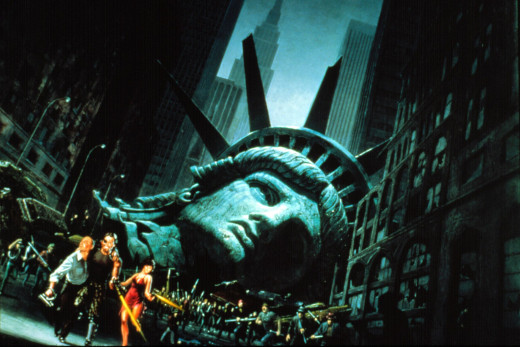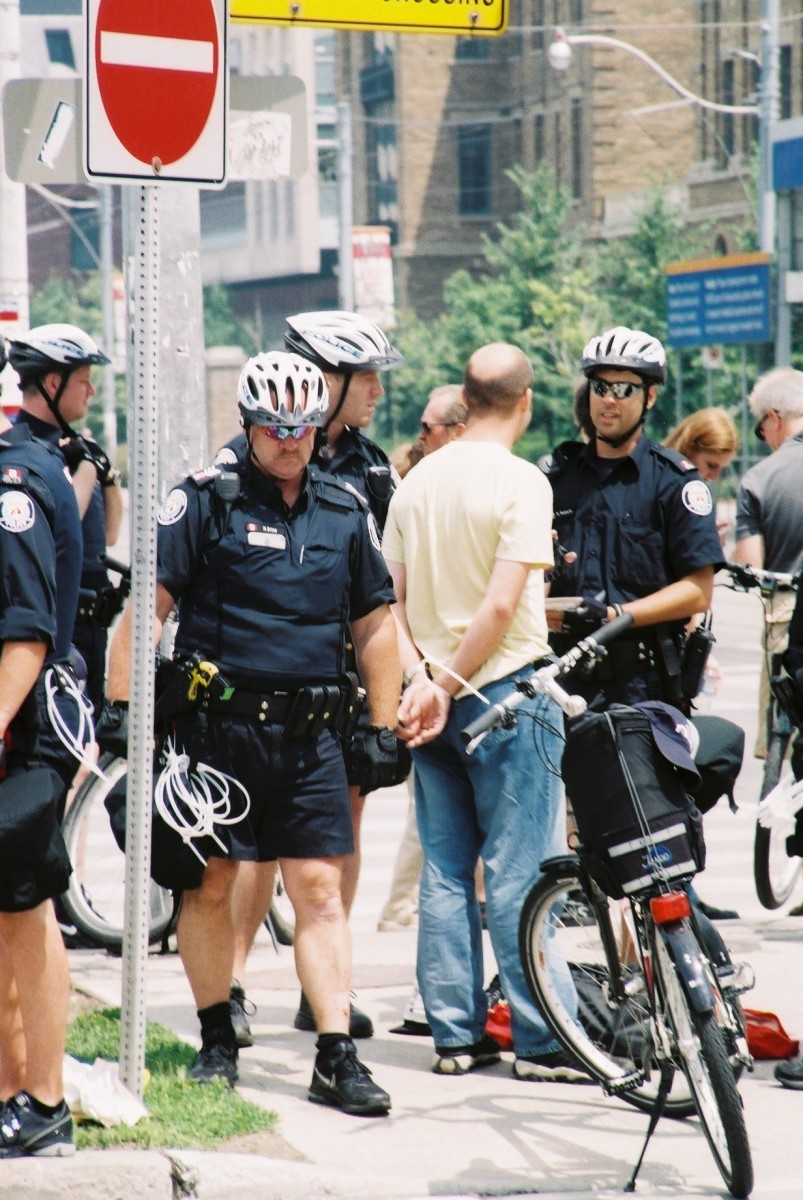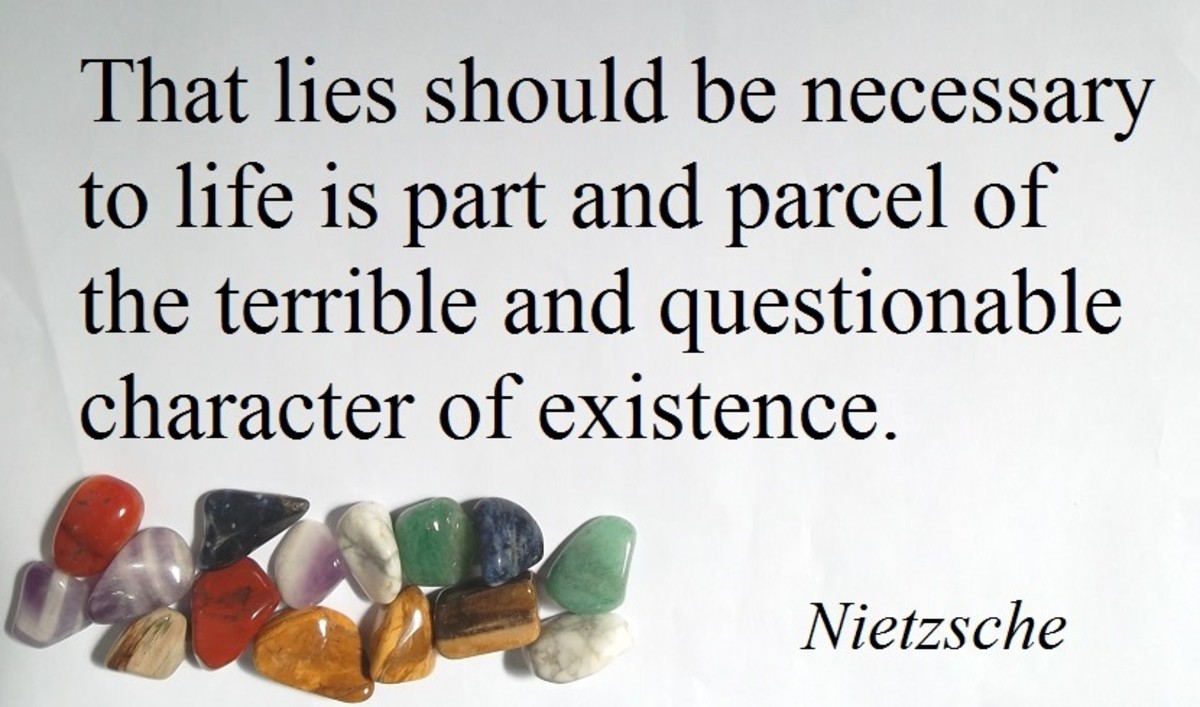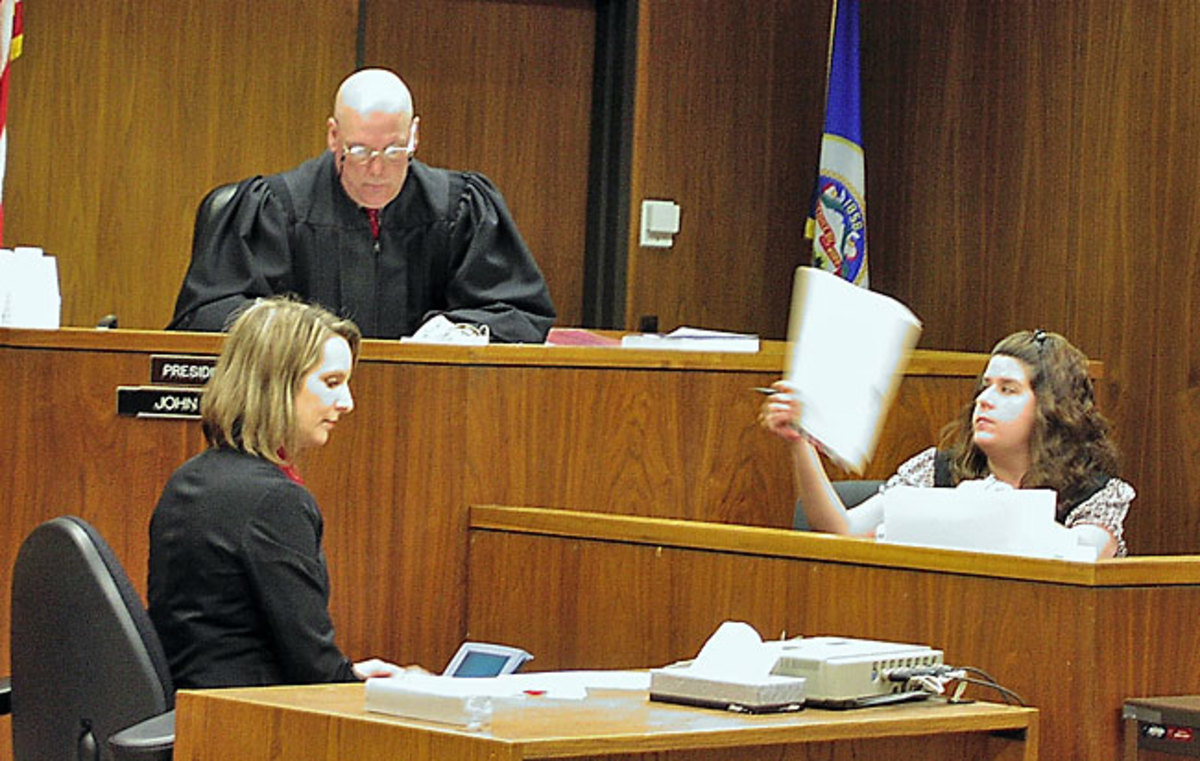Is Defunding the Police the Right Thing to Do?
Escape From New York, Escape From L.A., Robocop: We've All Seen The Films
Dystopian futures, lawlessness running rampant, a police force either completely useless or absent. Each of these films represent a breakdown of society, a law enforcement corrupt, a government ineffectual.
Is this what we really want?
- I'm a Minneapolis City Council Member. We Must Disband the Police—Here's What Coul
On Tuesday, May 26, we woke up to find a video circulating of a Minneapolis Police officer named Derek Chauvin kneeling on the neck of…

- Cities Ask if It’s Time to Defund Police and ‘Reimagine’ Public Safety
After more than a week of protests against police brutality and unrest that left parts of the city burned, a growing chorus of elected officials, civic leaders and residents in Minneapolis are urging the city to break up the Police Department and rei
Snake Plisson was a bad mamma jamma
When the President went down in New York, Snake was the man called upon to rescue him from the hell that was New York. A New York which had given up its law enforcement. A New York run by thieves, murderers and worse, where crime ruled the day.
A few years later, he was called upon to venture into Los Angeles to "Save The World" from destruction and retrieve something from the island that is now L.A. Another crime ridden place, filled with criminals and featuring no law, it is another hell on earth.
Robocop is a bit different, filled with criminals but featuring a corrupt private police force. Again, it is viewed as crime ridden, filled with the scum and that the real police simply not capable of dealing with the crime and possibly leaving humanity to deal with the problem themselves, before being replaced by a private police force and robots.
While Councilman Fletcher is not suggesting this type of system, does anyone really think that kinder, gentler more politically correct police force would be effective in dealing with murderers, rapists, those who have no respect for the law and are suffering from delusions and high on drugs?
Would an EMT really be able to handle a person on meth, threatening a store while robbing it, or a person holding a hostage while being themselves unarmed?
As the George Floyd killing has brought all of this to the forefront, shall we use his situation as an example. Police were called because he was trying to pass a counterfeit bill. He was described as being intoxicated to the 911 operator. So, who do you send to the scene?
Police? He was breaking the law by attempting to pass counterfeit money.
EMT? He was "intoxicated". But, what if he wasn't drunk, but high on drugs? Can the person calling 911 know what he is high on? Should this person describe what Mr. Floyd is doing, forcing the 911 operator to decide who is best suited to handle the situation without being there and seeing firsthand what is going on? Are people on pot, meth, opiods, PCP to be treated the same or will there be separate groups designed specifically to deal with a set group of addicts?
Or do we ignore the situation entirely? After all, was he really harming anyone at that point in time? No, not really; but he was attempting to break the law, do something illegal. And what if he grew frustrated with the person refusing his money and became violent? It happens, and if that did play out then who would get the blame? Mr. Floyd? What if he killed the person refusing his money? That person is now dead, while Mr. Floyd is free to continue his crime and might only get a few years in prison for the killing of another person. The store owner? A seemingly random innocent victim? Or the 911 operator for not dispatching someone to prevent the escalation?
Even on a seemingly simple situation as this, the water gets muddy within the first seconds. At present, police are sent to the scene to evaluate and determine what the next course of action is. They might not be the best suited for any one situation, but they are they best qualified we have to ascertain the parameters of what is going on and call in the proper help needed to make the scene safe for the most people possible.
What if the situation changes once the first responders are on the scene?
What if, in this scenario, someone designed to care a person who was intoxicated, or on drugs, were called to the scene and this person then turned violent? It happens, quite often. In trying to corral a person and get them to do something they do not want to do, they turn violent and resist. Is an EMT, or whoever is sent out, qualified to handle this escalation? Should they be tasked with restraining someone who has a weapon, or is fighting?
If you say yes, then it sounds to me like you are describing a police officer. Trained to determine what is going on, call for help, handle a troublesome person out of control, deliver a baby, perform CPR, and who knows what else.
So, how would sending another person not trained to handle all types of scenarios make the situation any better? Safer? For the person or the public, to say nothing of the responder? I don't understand.
The Demolition Man is another dystopian example of police going soft.
Extreme, yes I know. Unlikely, dear God I hope so. But it represents something I have to look at as an example of the direction this would go. A violent criminal re-educated in prison. A society gaining comfort over the years in the change in its life to the point where when a truly violent person arrives, they have no conception of how to deal with him.
And I ask you, in all earnestness, do you really feel that "affordable housing, addiction counseling, violence prevention programs" (a direct quote from an article on City Pages authored by Hannah Jones on June 4, 2020) will prevent violent crimes from taking place? Can a better, cheaper (affordable) place to live make rape go away? Can it do away with the murder taking place in Chicago, Detroit, New York? Really?
Addiction counseling is present in some locations now, so is it working? Has there been a reduction of addicts in the specific areas they are located? Has there been a reduction in associated crime such as theft, burglary, muggings, assaults? I would really like to know.
And what, exactly, would a "violence prevention program" look like? How does one prevent violence? Isn't that exactly what a police presence, a National Guard presence, a military presence does now? On a larger scale, isn't that exactly what nuclear weapons were between the United States and Russia? We both have the ability to kill one another ten times over, so let's not do it. Fear and respect accomplished what fighting could not, and we had decades of relative peace between these two super powers. I am not saying it was right, but it achieved what the world was looking for, no nuclear warfare.
- Minneapolis City Council members consider disbanding the police | City Pages
If you’ve been tuned into the Minneapolis public safety scene, you know that for years, Reclaim the Block and other grassroots community groups…
I am not saying what we have is the best we can expect, or ever get.
I'm not. But to do away with the very thing that is supposed to stand between the public, the innocents who do not commit crime and do not want it in their faces, and those who desire nothing more than to be allowed to do as they please, to have the law of the jungle as the law of the land is nonsensical at best, criminal itself at worst. To remove the enforcing body and replace it with "niceness" and "kindness" and such is to allow those who do not care whatsoever to run rampant in the streets, to take over the remaining neighborhoods and districts which have lower crime rates.
If I am not mistaken, haven't we tried that with our children already? So many people misunderstood Dr. Spock in the 1960's and 70's and did not discipline their children, rather tried to "explain", to "reason" with their child. How did that work? We ended up with a generation of people who have no respect for the law, for others rights. Who feel that they can do as they please and get no more than a literal slap on the wrist, a timeout. I am not saying beating your child is the answer, not by a long shot; but to give boundaries and hold children accountable for their actions might have made them grow up differently and we might not be dealing with situations like this today.
So, am I saying we have a problem stemming from those teachings? Maybe.
This statistic concerns me the most. Percent of children in single parent households in America today.
One thing I feel might be a factor in raising a law abiding, respectful child is the home itself. If two parents are present, then parenting duties can be split, another person relied upon to assist in the upbringing of a child. A more well rounded, loving and perhaps disciplined household might result from having two parents. Additional income, shared duties, more love and compassion, less fatigue resulting in lashing out or loss of control of a child. If only one parent is present, they might be more likely to work two or more jobs, resulting in an absentee parent and a child running the streets unsupervised.
The table below shows the amount of single parent households in America by race. It is shocking to me; absolutely shocking. To say these kids in these situations have the deck stacked against them from the very start is an understatement. It is morally wrong, financially abhorrent and criminal to leave these families alone and without hope. If we truly desire to change, to assist, to lift up from poverty here might be a good place to begin.
Percent of single parent families within their race
Race
| 2009
| 2018
|
|---|---|---|
White
| 24%
| 24%
|
African American
| 67%
| 65%
|
Hispanic
| 40%
| 41%
|
Asian
| 16%
| 15%
|
Two or more races
| 41%
| 40%
|
When two thirds of children in the African American households in America only have one parent, how can they possibly be supervised, loved, taught respect, spend quality time together?
- Children in single-parent families by race | KIDS COUNT Data Center
Best source for child and family well-being indicators in the United States. National, state, county, congressional district, and city data. Economic well-being, education, health, family structure, and community data. Data by race, sex by age. KIDS
Help is desperately needed.
These families desperately need our help to change their way of life. But, they need to help themselves as well. Part of the problem is jobs; so a single woman has multiple babies in order to get more money on welfare to live. If no jobs are available, this becomes her way of life.
However, if education is available, and she strives to improve her lot in life while in school and refuses to allow herself to be used by men she has a chance to get beyond the hood. But she needs a place to go, a job to strive for. Education will work but it must be intelligent education, not simply education for education's sake.
A plan needs to be put in place in order to further these people's opportunity, and removing the very protective force keeping violence at bay is not the answer. They need to be trained better, yes; but the public needs to know that if violence is shown towards them, they will respond in like. This need to be controlled, restrained violence and only as much is required to make the situation safe for all concerned.
Maybe everyone needs to wear magnetic bracelets on their wrists and ankles; that way, a police officer could activate them and restrain the person acting out without coming into contact with them or resorting to the use of deadly force in order to control the scene.
Maybe.
This content is accurate and true to the best of the author’s knowledge and is not meant to substitute for formal and individualized advice from a qualified professional.
© 2020 Lee Franklin





